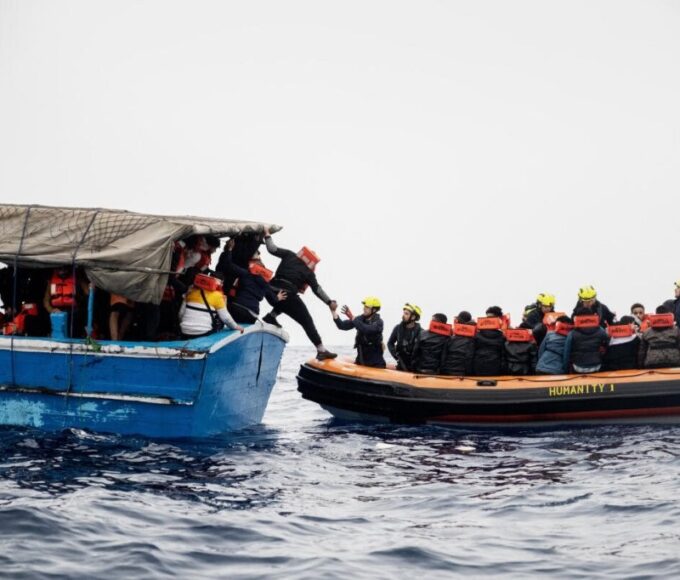
AFRICA’S GROWING NAVAL AMBITIONS: WHO LEADS THE PACK?
Africa’s coastlines support millions of families on the continent. From a thriving fishing industry to several trade routes that link the continent to the world. Thirty-eight of Africa’s 54 countries have coastlines, so protecting these waters from pirates, illegal fishing, and global rivalries is critical. For coastal communities, a strong navy protects their jobs and way of life. Many African nations now build up their naval forces with new ships and plans to secure their waters and gain influence. This article looks at the top countries leading Africa’s naval efforts and the challenges they face in this vital mission.
Egypt leads Africa’s naval ambitions with its formidable fleet, ranking 19th globally per the 2025 Global Firepower Index. Its navy boasts over 140 vessels, including frigates, corvettes, and submarines, many acquired from France and Germany. Egypt’s strategic position along the Suez Canal drives its focus on maritime security, ensuring safe passage for global trade. Recent acquisitions, like the French-built FREMM frigates, enhance its blue-water capabilities, projecting power across the Mediterranean and Red Sea. Egypt’s investments reflect its aim to dominate North African maritime affairs.
Read Also: Fisheries Protection and Naval Enforcement: The Overlooked Mission
Algeria follows closely, with a naval fleet of 213 vessels, the largest in Africa according to 2024 rankings. Its navy includes Russian-built Kilo-class submarines and Chinese corvettes, emphasizing coastal defence and anti-piracy operations in the Mediterranean. Algeria’s focus on modernizing its fleet, including plans for domestic shipbuilding, signals its intent to secure its extensive coastline and counter regional rivals. However, logistical challenges and reliance on foreign suppliers limit its operational reach compared to Egypt.
Nigeria ranks third with 133 vessels, driven by the need to combat piracy in the Gulf of Guinea, a global hotspot. Its navy has acquired patrol boats and offshore vessels, often from China and Europe, to police its resource-rich EEZ. Projects like the locally built Seaward Defence Boats highlight Nigeria’s push for self-reliance, though budget constraints and maintenance issues hinder progress. Nigeria’s ambitions focus on regional security, but its navy struggles to match its aspirations with operational capacity.
South Africa, ranked seventh with 47 vessels, prioritizes quality over quantity. Its navy, based at Simon’s Town, operates German-built Type 209 submarines and Valour-class frigates. Operation Phakisa, a government initiative, links maritime security to economic growth, targeting illegal fishing and resource protection. Budget cuts, however, have delayed refits and new acquisitions like Project Biro’s patrol vessels. South Africa’s advanced defence industry gives it an edge, but financial limitations curb its regional influence.
Emerging players like Angola and Morocco are also investing in naval capabilities. Angola, with 40 vessels, focuses on securing its oil-rich EEZ, acquiring patrol boats from Brazil and Spain. Morocco, with 121 vessels, emphasizes coastal defence and has collaborated with European nations for modern corvettes. Both nations benefit from international partnerships but face challenges in sustaining advanced fleets due to economic constraints and limited technical expertise.
Geopolitical competition shapes Africa’s naval ambitions. China’s growing presence, with investments in 78 African ports, raises concerns about dual-use facilities for its navy, as seen in Djibouti. India’s AIKEYME exercise and the U.S.’s Obangame Express counter this influence, fostering maritime cooperation. African navies must balance these partnerships with domestic priorities, developing “sea legs” for coastal defence before pursuing blue-water ambitions. As economic growth and maritime security intertwine, nations such as Egypt, Algeria, and Nigeria are at the forefront, but sustainable progress depends on overcoming financial and logistical hurdles.
King Richard Igimoh, Group Editor ALO
King Richard Igimoh, Group Editor African Leadership Organisation is an award-winning journalist, editor, and publisher with over two decades of expertise in political, defence, and international affairs reporting. As Group Editor of the African Leadership Organisation—publishers of African Leadership Magazine, African Defence & Security Magazine, and Africa Projects Magazine—he delivers incisive coverage that amplifies Africa’s voice in global security, policy, and leadership discourse. He provides frontline editorial coverage of high-profile international events, including the ALM Persons of the Year, the African Summit, and the African Business and Leadership Awards (ABLA) in London, as well as the International Forum for African and Caribbean Leadership (IFAL) in New York City during the United Nations General Assembly.
Recent Posts
Categories
- Air & Aerospace17
- Border Security15
- Civil Security6
- Civil Wars4
- Crisis5
- Cyber Security8
- Defense24
- Diplomacy19
- Entrepreneurship1
- Events5
- Global Security Watch6
- Industry8
- Land & Army9
- Leadership & Training5
- Military Aviation7
- Military History27
- Military Speeches1
- More1
- Naval & Maritime9
- Policies1
- Resources2
- Security12
- Special Forces2
- Systems And Technology9
- Tech6
- Uncategorized6
- UNSC1
- Veterans7
- Women in Defence9
Related Articles
THE RED SEA AND HORN OF AFRICA: HOTSPOTS OF MARITIME CONFLICT
By December 2025, the Red Sea and the Horn of Africa sit...
ByKing Richard Igimoh, Group Editor ALODecember 23, 2025NAVAL FORCES EMERGE AS LIFELINES IN GLOBAL HUMANITARIAN RESCUE MISSIONS
Modern navies are increasingly defined not only by their combat power but...
ByKing Richard Igimoh, Group Editor ALONovember 20, 2025THE STRATEGIC IMPORTANCE OF DJIBOUTI’S PORTS
Djibouti, a small nation located on the Horn of Africa, commands an...
ByKing Richard Igimoh, Group Editor ALOOctober 21, 2025SUBMARINE PROGRAMMES IN AFRICA: PRESTIGE OR NECESSITY?
Africa’s naval power has long rested on surface vessels, yet the rise...
ByKing Richard Igimoh, Group Editor ALOSeptember 23, 2025












